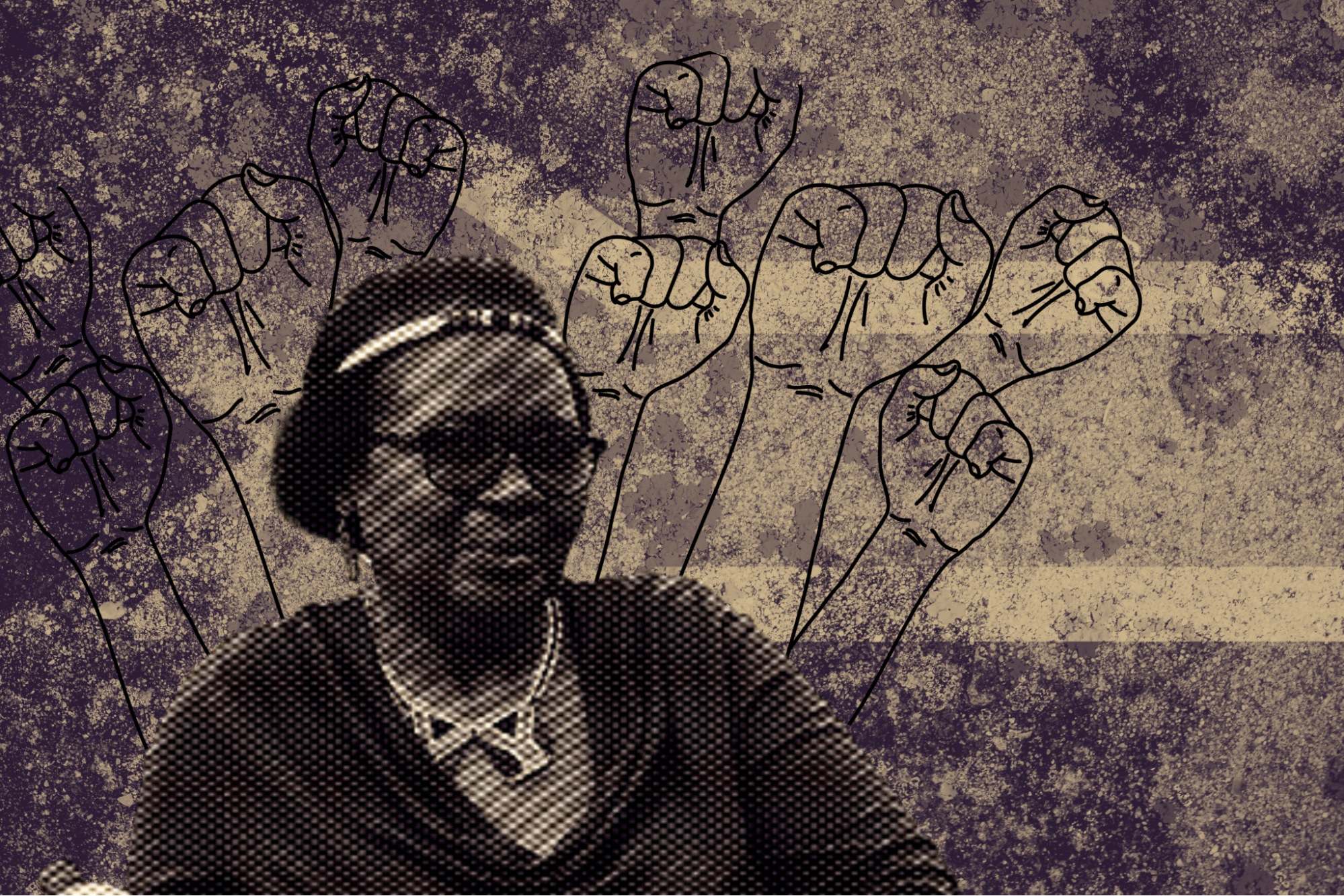But as ‘Day Zero’ has loomed ever closer, the crisis has done something else: it has exposed another layer of stark inequality that exists in South Africa: the unequal access to water that mega water users have in comparison to people.
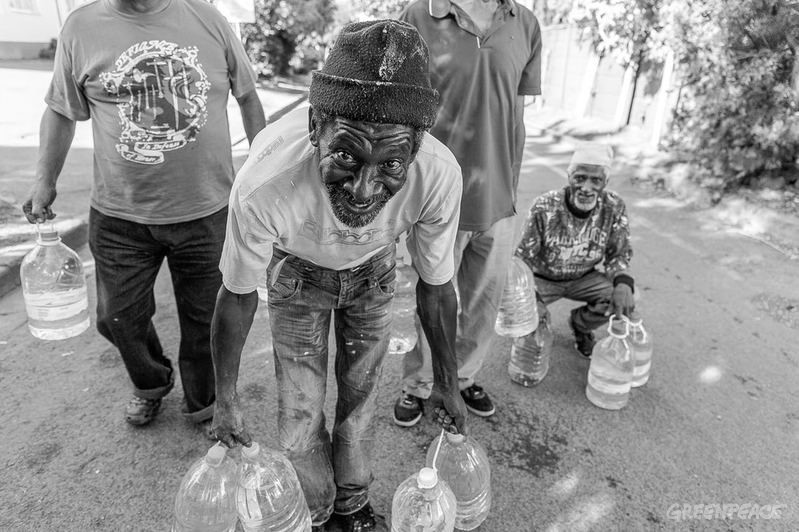
The official statistics which tell us that nearly 90% of South Africans have access to piped water hide the complicated issues behind water service delivery protests that include: poor quality of water from existing infrastructure, intermittent water supplies, corruption, poor operation and maintenance of infrastructure, difficulties in access, restrictions and disconnections.
While the people in South Africa struggle with these very complex water issues, mega water users have clear, undisputed access to high quality water. An estimated two thirds of South Africa’s water goes towards irrigation for agriculture, which creates an important land-water nexus that should not be ignored. However, single water users can also use mind-boggling amounts of water. Protests were recently held at Coca Cola offices against their water-intensive production processes and Eskom has the dubious honour of using 10 000 litres of water per second.
Eskom is also the only strategic water user listed in the National Water Act, which means that the utility would get access to water above every other user, even in the case of a catastrophic drought or ‘Day Zero’ scenario.
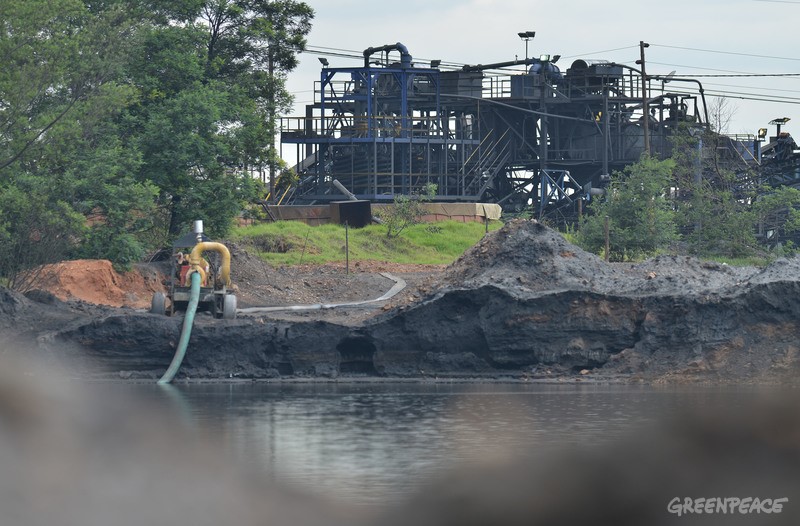
As the Water Research Commission has clearly stated, water is a human rights issue and ‘the Constitution of South Africa has placed a legal obligation on the government to realise people’s right to sufficient water’.
If we agree that water is fundamental to human life, then the injustice in terms of how water is distributed in the country, along with the quality of water supply becomes clear. The truth is that we have recognised water as a human right, but we haven’t delivered it because 14% of South Africans don’t have access at all, while mega water users can use as much (high quality) water as they like.
As Day Zero retreats once again to July 15th, the immediate panic of trying to figure out what to do when the taps run dry retreats somewhat too. But this creates space for us to think about the principles that are most important in relation to water, and dealing with the bigger picture of long term water scarcity in South Africa. South Africa’s mean annual precipitation is fifty percent lower than the global average, and water scarcity is an ongoing significant challenge that climate change is likely to worsen. This isn’t a problem that is going away. The Department of Water Affairs has projected that water demand will exceed supply by 2025, even by its most conservative scenario, unless considerable attention is paid to managing water demand.
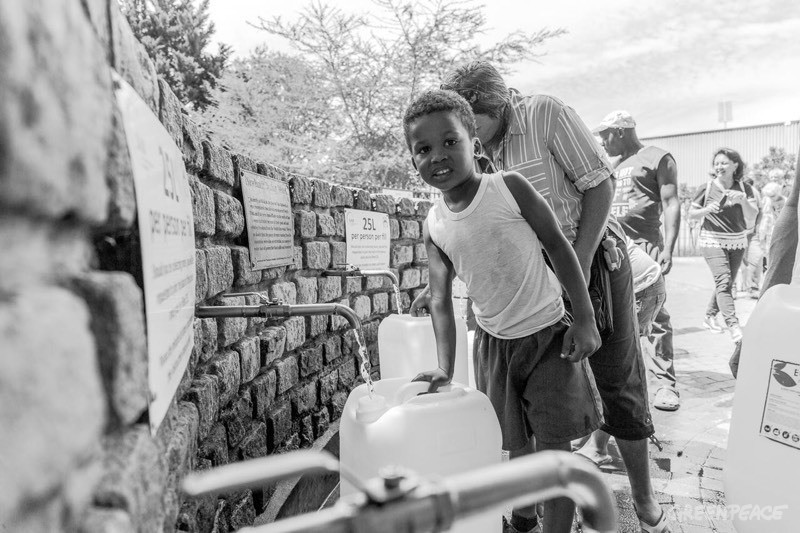
The recent cabinet reshuffle put a number of departments in the spotlight, not least of those, the Department of Water Affairs, which is a department in chaos, with serious accusations of corruption being levelled at the former Minister and her officials. What this means is that the Department has been unable to implement its mandate, and when we are faced with something like a mega water crisis, the system and officials are not resilient enough to cope. A Department of Water Affairs in crisis puts future water security at risk, and there is a big job for new Minister Gugile Nkwinti.
The picture seems a bit grim, particularly for those living in the drought affected provinces. But the clear solution is to make sure that water as a fundamental human right becomes more than just rhetoric – mega water users should no longer have a licence to use as much water as they like. No government department should be taking decisions that puts this human right at risk. The bottom line is that water is life. We cannot live without it and we must make sure that people’s right to water is put first and protected.
Related Posts
-
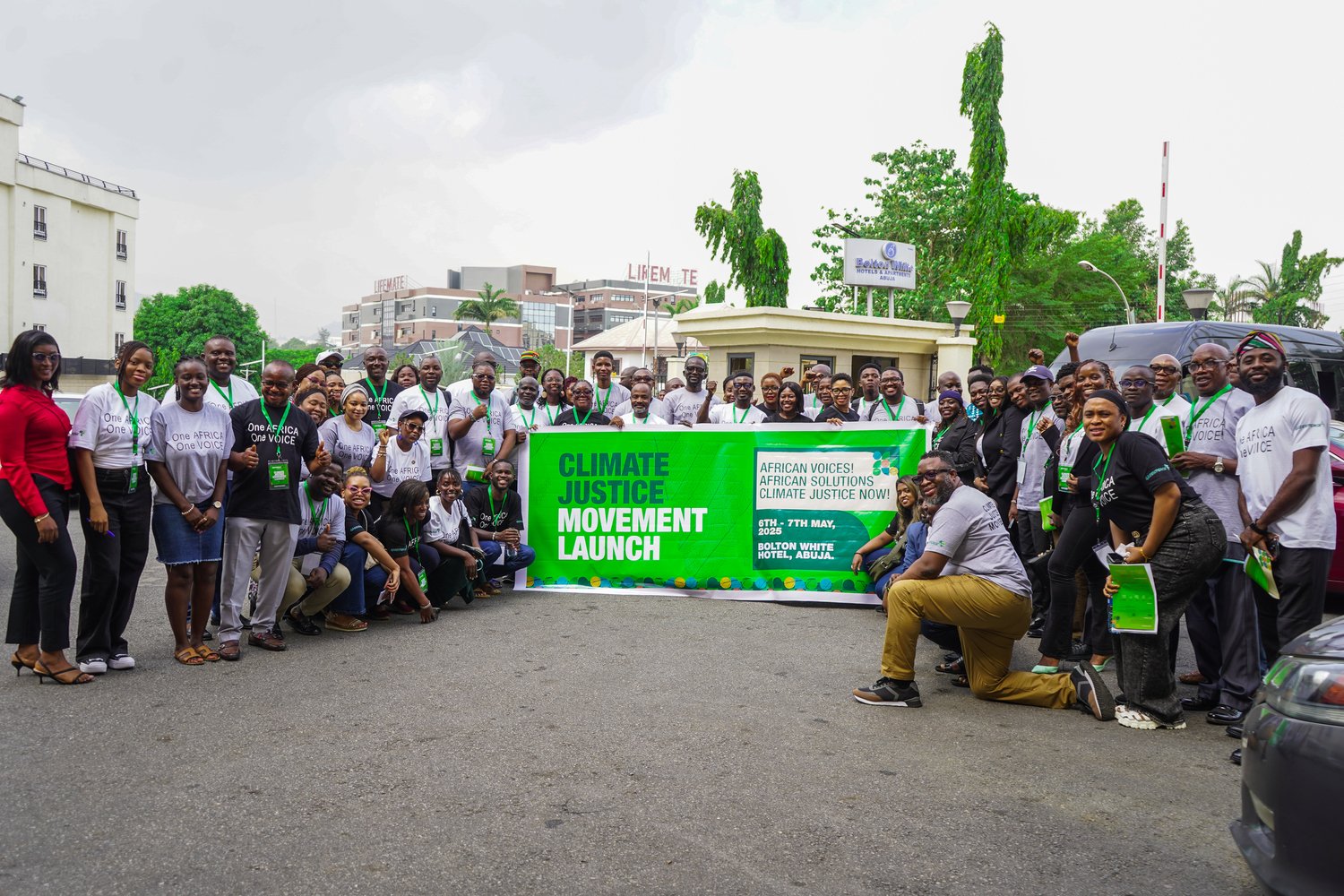
Historic breakthrough: over 40 Nigerian civil society organisations unite to launch climate justice movement
Abuja, Nigeria: May 7, 2025 -In a watershed moment for the promotion of environmental justice in Nigeria, more than 40 Civil Society Organisations (CSOs) joined forces to launch the Nigerian Climate Justice Movement (CJM).
-
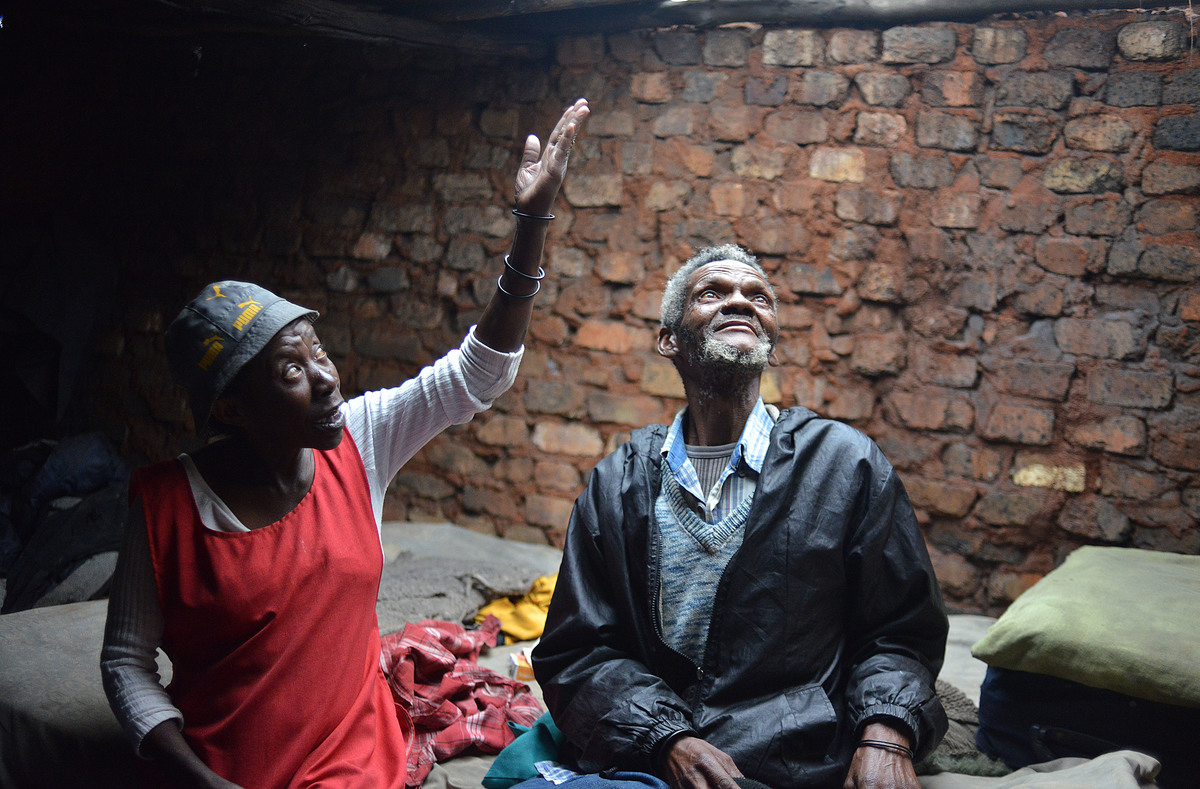
South Africa Elections 2024: The Energy Crisis, The Unemployment Fix & You
How does a vote for clean energy and the climate agenda improve everyday South African life?

